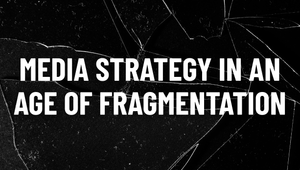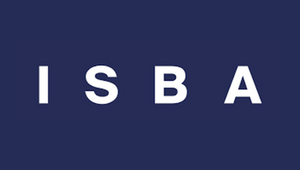
IPA Report Urges Agencies to Rethink Commercial Models

Agencies must ensure that the prices they charge accurately reflect the value they deliver. This is the central message of the IPA’s latest report, ‘The Price Isn’t Right’, to be unveiled at the flagship IPA Business Growth Conference that calls for a fundamental reassessment of, and proposes a roadmap for, how agencies structure their commercial models and client partnerships.
Published five years after the IPA’s seminal study ‘The Price of Success’, this new report, produced in partnership with Creative Salon and based on 63 qualitative interviews with creative and media agencies, clients and intermediaries, finds that the industry remains largely reliant on traditional time-and-resource (FTE-based) pricing models. Despite widespread acknowledgment among agencies and intermediaries that these models no longer align with the complexity and strategic nature of modern agency services, meaningful progress has been limited.
Supporting this, a recent IPA survey conducted ahead of the report found that only 27% of agencies believe they are paid a fair price for the work they do, while 58% report little to no progress in reforming commercial agreements.
“This is not just about price, it’s about value,” said Jason Cobbold, chair of the IPA Commercial Leadership Group and CEO of BMB. “Too often agencies are caught up in the battle to win business and fail to leave the time and space to challenge pricing strategy. Too often agencies let existing contractual arrangements roll over another year because change is difficult. If we are to evolve meaningfully, this has to change.”
Key findings:
The report outlines several systemic barriers to pricing innovation:
1. Entrenched FTE dominance:
FTE models persist due to their comparability, administrative ease and alignment with procurement expectations, especially within global frameworks. Outcome-based pricing, although discussed, remains rarely implemented.
2. Barriers to innovation:
- Client caution: Short-term financial pressures, rigid global procurement rules and fear of risk deter clients from adopting new pricing approaches.
- Agency complicity: Agencies often default to existing models due to internal incentives, fear of losing business and lack of commercial training or support.
- Procurement influence: Pricing innovation is frequently stifled during the pitch process, where rate cards and like-for-like comparisons dominate.
3. Slow momentum for change:
There is some interest in hybrid models blending FTEs with performance related fees (PRFs), drawdown pools, or subscription-like arrangements. AI holds potential to improve attribution and forecasting, enabling smarter outcome-based pricing, but its adoption is still largely aspirational.
Yet, the report also identifies a strong appetite for reform. It presents a series of practical, business-focused solutions to help agencies and clients navigate this commercial crossroads.
Proposed solutions:
1. Modernising FTE Models:
Evolve FTE frameworks to account for hybrid teams, strategic consulting, data and AI capabilities, moving toward value-based pricing while retaining structural clarity.
2. Flexible, portfolio-based pricing:
Equip agencies with a range of models to suit varying client needs:
- Output- or outcome-based pricing
- Subscription or drawdown access models
- Licensing or IP-based fees
- Strategic resource pools
3. Client education and confidence building:
Agencies must lead in educating clients, tailoring proposals to speak the language of procurement, finance, and marketing - offering clarity, benchmarks and commercial alignment.
4. Shared industry infrastructure:
Establish tools, frameworks, and guides to support adoption of innovative pricing, including:
- Clear KPIs
- Measurement protocols
- Briefing discipline
- Intermediary support for modern pricing
IPA action plan:
To help its agencies on this journey, the report outlines three actions the IPA will undertake in the coming months:
- It will produce a commercial model playbook with accompanying training available
- It will continue to engage with procurement
- It will create a set of Pitch Positive Principles, in consultation with members and partners
Jason Cobbold, chair of the IPA Commercial Leadership Group and CEO BMB said, “While there is no single solution, the report is clear: progress requires courage and commercial fluency. Agencies must challenge internal norms, present bold new models and demonstrate value beyond hours billed. Clients, in turn, are urged to engage with curiosity and openness, rewarding partners based on outcomes, not just inputs. We need to reframe pricing as a shared value conversation, not a cost negotiation.”
Joyce Kelso, director of agency value, IPA said, “The need for agencies to evolve their commercial models has never been more urgent. Marketers are looking for more than just new pricing options; they want transparency, clarity, and, above all, value that’s tied to outcomes, not just hours. With market pressures shifting and new ways of working emerging, agencies must act now and the IPA is committed to supporting them on this journey.”
IPA members can access the full "The Price Isn't Right" report for free from the IPA website. Non-members can purchase the report for £25.













